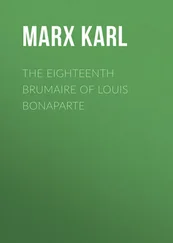Austin Dobson - Eighteenth Century Vignettes
Здесь есть возможность читать онлайн «Austin Dobson - Eighteenth Century Vignettes» — ознакомительный отрывок электронной книги совершенно бесплатно, а после прочтения отрывка купить полную версию. В некоторых случаях можно слушать аудио, скачать через торрент в формате fb2 и присутствует краткое содержание. Жанр: foreign_antique, foreign_prose, на английском языке. Описание произведения, (предисловие) а так же отзывы посетителей доступны на портале библиотеки ЛибКат.
- Название:Eighteenth Century Vignettes
- Автор:
- Жанр:
- Год:неизвестен
- ISBN:нет данных
- Рейтинг книги:5 / 5. Голосов: 1
-
Избранное:Добавить в избранное
- Отзывы:
-
Ваша оценка:
- 100
- 1
- 2
- 3
- 4
- 5
Eighteenth Century Vignettes: краткое содержание, описание и аннотация
Предлагаем к чтению аннотацию, описание, краткое содержание или предисловие (зависит от того, что написал сам автор книги «Eighteenth Century Vignettes»). Если вы не нашли необходимую информацию о книге — напишите в комментариях, мы постараемся отыскать её.
Eighteenth Century Vignettes — читать онлайн ознакомительный отрывок
Ниже представлен текст книги, разбитый по страницам. Система сохранения места последней прочитанной страницы, позволяет с удобством читать онлайн бесплатно книгу «Eighteenth Century Vignettes», без необходимости каждый раз заново искать на чём Вы остановились. Поставьте закладку, и сможете в любой момент перейти на страницу, на которой закончили чтение.
Интервал:
Закладка:
In any case, the real documents show clearly that, instead of resenting the amendments and alterations of his 'Deare Little Infallible,' as he calls him, the old dramatist received them with effusive gratitude; and, far from reproaching the poet for neglecting to visit him (which Pope implied), constantly delayed or postponed his own visits to Pope at Binfield; – in short, did, in reality, just the very reverse of what he is represented as doing in Pope's garbled correspondence. So that, in these worshipful communiqués to Spence, Pope must simply have been playing at that eighteenth-century pastime to which Swift refers in the 'Polite Conversation' as 'Selling a Bargain.'
In Pope's life, it is to be feared, there were not a few of these equivocal mercantile transactions. He certainly imposed on Spence's credulity when he told him that 'there was a design whieh does not generally appear,' in other words, a cryptic significance, in his correspondence with Henry Cromwell. And he also, with equal certainty, disposed of 'a great Pennyworth' (in the current phrase) when he gave him the – from his own point of view – eminently plausible account of the circumstances which led to the notorious character of 'Atti-cus.' Whether Spence, who could not be said to be unwarned, since he records Addison's caution to Lady Mary against Pope's 'devilish tricks,' had any lurking suspicion that Pope was not to be relied upon, does not appear. But it is obvious that, without Spence's 'Anecdotes,' Pope's biographers would have played but a sorry figure. From Spence it is that we get the best account of Pope's precocious early years and studies; of his boyish epic of Alcander, Prince of Rhodes, with its under-water scene, and its four books of one thousand lines; of the manner of his translation of Homer and his plan for the 'Essay on Man;' and of a number of facts concerning the trustworthiness of which there can be no reasonable doubt. Nor can there be any doubt as to the bulk of his purely critical utterances. Many of these, and especially such as deal with individual authors, are now become trite and faded. However novel may have been the announcement under George the Second, we now learn without a shock of surprise that Chaucer is an unequalled taleteller, that Bacon was a great genius, that Milton's style is exotic. But, upon his own craft, Pope's axioms are still sometimes worth hearing. 'A poem on a slight subject,' he says, 'requires the greater care to make it considerable enough to be read.' 'After writing a poem one should correct it all over, with one single view at a time. Thus, for language: if an elegy, "These lines are very good, but are they not of too heroical a strain?" and so vice versa ' 'There is nothing so foolish as to pretend to be sure of knowing a great writer by his style.' ' Nil admirari is as true in relation to our opinions of authors as it is in morality; and one may say, O, admiratores, servum pecus! fully as justly as O, Imitator es! ' 'The great secret how to write well is to know thoroughly what one writes about, and not to be affected.' This last, however, is scarcely more than an Horatian commonplace.
With the aid of Spence's 'Anecdotes' we gain admission to the little villa by the Thames where, during the spring of 1744, wasted by an intolerable asthma, but waiting serenely for the end, Pope lay sinking slowly. Many of his sayings, and the sayings of those who visited his sick-room, have their only chronicle in this collection. About three weeks before his death, he printed his ' Ethic Epistles, ' copies of which he gave away to different persons. 'Here am I, like Socrates,' he told Spence, 'distributing my morality to my friends, just as I am dying.' On Sunday, the 6th of May, he lost his mind for several hours, – a circumstance which sets him wondering 'that there should be such a thing as human vanity.' Already his spirit was escaping fitfully to the Unknown. There are false colours on the objects about him; he looks at everything 'as through a curtain;' he sees 'a vision.' Most of all he suffers from his inability to think. But the old love of letters still survives; he quotes his own verses; and when in his waking moments Spence reads to him the 'Daphnis and Chloe' of Longus, he marvels how the infected mind of the Regent Orleans can have relished so innocent a book. As to his condition he has no illusions. On the 15th, after having been visited by Thompson the quack, who had been treating him (as Ward treated Fielding) for dropsy, and professed to find him better, he described himself to Lyttelton as 'dying of a hundred good symptoms!' 7 7 This must have been a commonplace. 'Like the sick man, we are just expiring with all sorts of good symptoms,' says Swift, in the 'Conduct of the Allies,' 1711.
'On every catching and recovery of his mind,' Spence tells us, 'he was always saying something kindly either of his present or his absent friends' – 'as if his humanity had outlived his understanding.' Many of the well-known figures of the day still came and went about his bedside – Bolingbroke from Battersea, tearful and melancholy, full-blown Warburton, Lyttelton above-mentioned, Marchmont, blue-eyed Martha Blount; and it was 'very observable' how the entry of the lady seemed to give him temporary strength, or a new turn of spirits. To the last he continued to struggle manfully with his malady. On the 27th, to the dismay of his friends, he had himself brought down to the room where they were at dinner; on the 28th his sedan chair was carried for three hours into the garden he loved so well, then filled with the blossoms of May and smelling of the coming summer. On the 29th he took the air in Bushey Park, and a little later in the day received the sacrament, flinging himself fervently out of bed to receive it on his knees. 'There is nothing that is meritorious, he said afterwards, 'but virtue and friendship, and indeed friendship itself is only a part of virtue.' On the next day, the 30th of May, 1774, he died. 'They did not know the exact time,' writes the faithful friend to whom we owe so many of these 'trivial, fond records,' – 'for his departure was so easy that it was imperceptible even to the standers-by.'
IV. CAPTAIN CORAM'S CHARITY
AMONG a ragged regiment of books, very dear to their owner, but in whose dilapidated company no reputable volume would greatly care to travel through Coventry, is a sheepskin-clad tract entitled 'Mémoires Relating to the State of the Royal Navy of England, For Ten Years, Determin'd December 1688.' It dates from those antiquated days when even statistics had their air of scholarship and their motto from 'Tully' or 'the Antients' ( Quid Didcius Otio Litterato? – it is in this case); and the year of issue is 1690. The name of the author does not appear, but his portrait by Kneller does; and he was none other than the diarist Samuel Pepys, sometime Secretary to the Admiralty under the second Charles and his successor. 8 8 The copy hero described also contains – but apparently only inserted by a former owner – the scroll book-plate of Pepys.
In itself the little volume is an extremely instructive one, as much from the light it throws upon the prominent part played by its writer in the reconstruction of the Caroline navy, as from its exposure of the lamentable mismanagement which permitted toad-stools as big as Mr. Secretary's fists to flourish freely in the ill-ventilated holds of his Majesty's ships-of-war. But the special attraction of the particular copy to which we are referring lies in certain faded inscriptions which it contains. On March 14, 1724, it was presented by one 'C. Jackson' to 'Tho. Coram,' by whom in turn it was transferred to a Mr. Mills, being accompanied by a holograph note which is pasted at the end: 'To Mr Mills These Worthy Sir I happend to find among my few Books, Mr Pepys, his mémoires [there has evidently been a struggle over the spelling of the name], wch I thought might be acceptable to you & therefore pray you to accept of it. I am wth much Respect Sir your most humble Scrfc Thomas Coram. June 10th, 1746.' It is not a lengthy document, but, with its unaffected wording and its simple reference to 'my few Books,' it gives a pleasant impression of the brave old mariner to whom, even at the present day, so many hapless mortals owe their all; and whose ruddy, kindly face, with its curling white hair, still beams on us from Hogarth's canvas at the Foundling.
Читать дальшеИнтервал:
Закладка:
Похожие книги на «Eighteenth Century Vignettes»
Представляем Вашему вниманию похожие книги на «Eighteenth Century Vignettes» списком для выбора. Мы отобрали схожую по названию и смыслу литературу в надежде предоставить читателям больше вариантов отыскать новые, интересные, ещё непрочитанные произведения.
Обсуждение, отзывы о книге «Eighteenth Century Vignettes» и просто собственные мнения читателей. Оставьте ваши комментарии, напишите, что Вы думаете о произведении, его смысле или главных героях. Укажите что конкретно понравилось, а что нет, и почему Вы так считаете.












